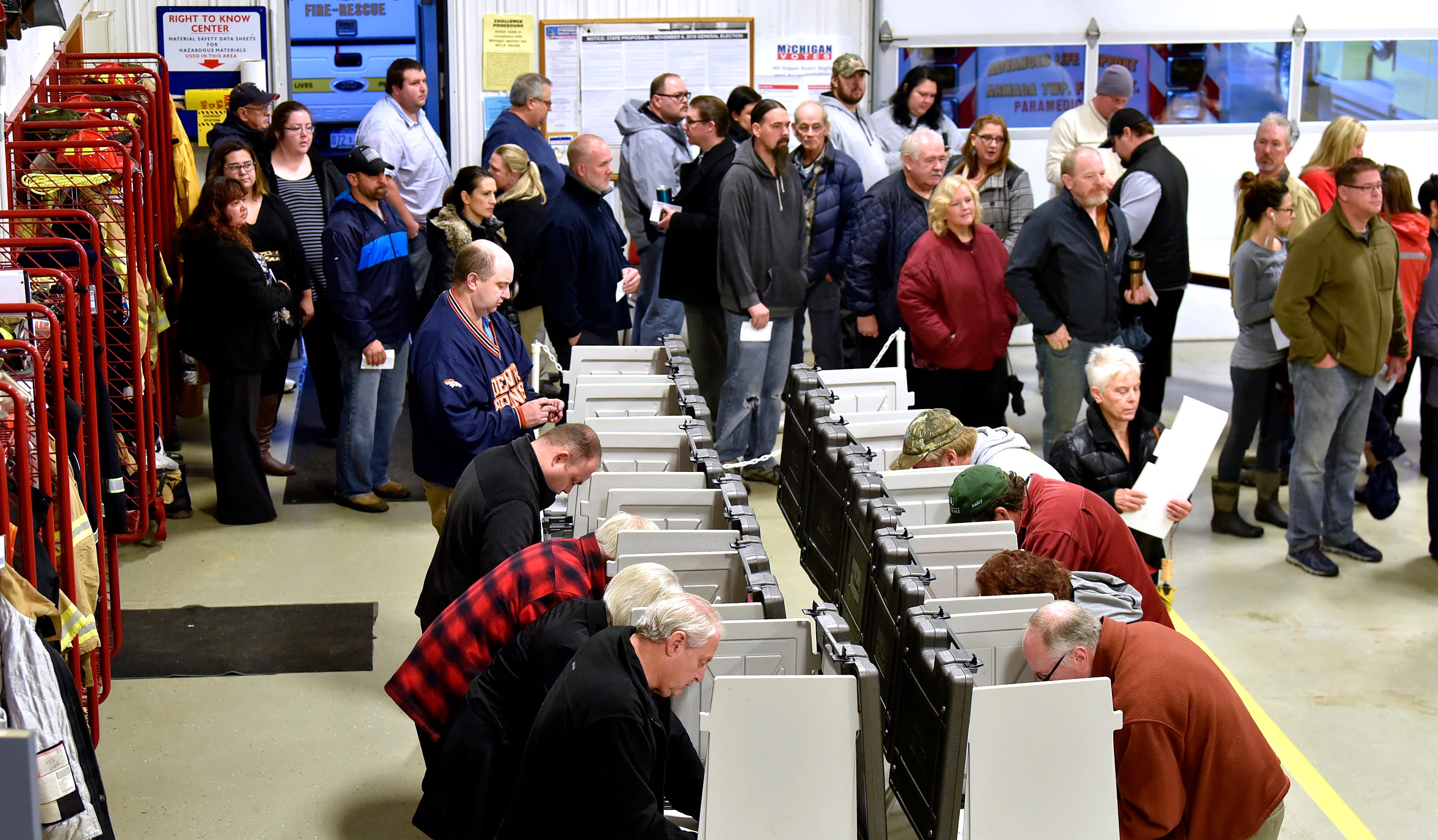Weather, voting snafus can't dampen high election turnout

Michigan voters came to the polls in large numbers Tuesday to decide races across the state.
"We are on pace to break a record in a gubernatorial election," Dearborn City Clerk George Darany said.
Absentee voting in the state's eighth largest city more than doubled last November's tally, Darany said.
"And they are still coming in," Darany said Tuesday night.
Detroit's Director of Elections Daniel Baxter said late Tuesday that he predicts turnout in the city will be the highest in a decade, around 40 percent.
"We had about 190,000 ballots cast," Baxter said.
High turnout was seen in Oakland County as well. Joe Rozell, director of elections for for the county, said voter turnout was unusually high.
“Most precincts in the county have had constant voting all day and most have had lines,” he said. “Although in some areas, voters are only waiting about 10 minutes and in other areas, they’re waiting a little bit longer than that.”
He said the county had sent out nearly 203,908 absentee voter ballots and more than 180,187 of them were returned as of Nov. 5.
“What we’re seeing is a significantly higher number of absentee ballots for a mid-term election,” Rozell said. “It’s more in line with what we see in a presidential election year."
That, combined with Tuesday’s Election Day turnout, is going to put the county on pace to be at or near turnout for a presidential election, he said.
But the day wasn't without its challenges.
In Dearborn, a non-partisan poll watcher said she saw poll workers at an elementary school being intimidated by several challengers, who she said told her they were with the Michigan Republican Party.
Isra Daraiseh, who works for the Dearborn non-profit ACCESS, said there were 5-7 Republican challengers at Salina Elementary, more than the two allowed per precinct. The school had two precincts at the location.
Darany said his poll workers did report that the challengers made them feel uncomfortable. But he said he had no reports that any voters were challenged. He said he sent a police officer to the school Tuesday afternoon as a precaution.
A spokesperson for the Michigan Republican Party said they didn't exceed the challenger limit.
"Only two were stationed behind the poll workers (where challengers stand)," Sarah Anderson, the party's Deputy Chief of Staff and Communications Director wrote in an email. " The other three were in a far corner making telephone calls. Our challengers felt a little intimidated, too, by the outside group questioning whether they could be there and whether or not the questions they, our poll challengers, were asking were legitimate."
Sharon Dolente, an ACLU of Michigan voting rights strategist, said they've gotten reports of challenger issues for the last several years at Salina.
"If you have some extra bodies milling around tin the voting precinct ... it could slow or stop voting," Dolente said.
Wayne County warned that results from its 1,119 voting precincts would take time to process.
“Please do not compare Wayne County to the other surrounding counties. Wayne County is unique unto itself in size and number of precincts,” said Wayne County Clerk Cathy M. Garrett said in a press release sent before polls closed.
There were other reports of technical problems that slowed voting.
Voting at Martin Luther King High School in Detroit was delayed by about a half-hour when poll workers couldn't find ballot machines when they arrived to set up at 5:45 a.m., according to Detroit Elections Supervisor Daniel Baxter.
Poll workers had to contact the delivery company to help them locate the machines, which weren't found until 7 a.m. Machines weren't up and running until sometime between 7:30 and 8 a.m., Baxter said.
"It's always our practice to keep these machines under lock and key until election morning," he said. Poll workers also usually arrive about an hour and 15 minutes before polls open, which normally gives them ample time to set up.
"In this particular instance, there was a mix-up," Baxter said.
At a polling place inside a Hamtramck senior center that housed seven precincts, Sam Alasri was on hand to help Yemeni residents. He is the president of the Yemeni American Political Action Committee.
“I am here, along with volunteers who are at all the polling places in Hamtramck, because we want to make sure there are no problems,” he said. “We’re here to help people understand if they need translating, or with any issues that may come up.”